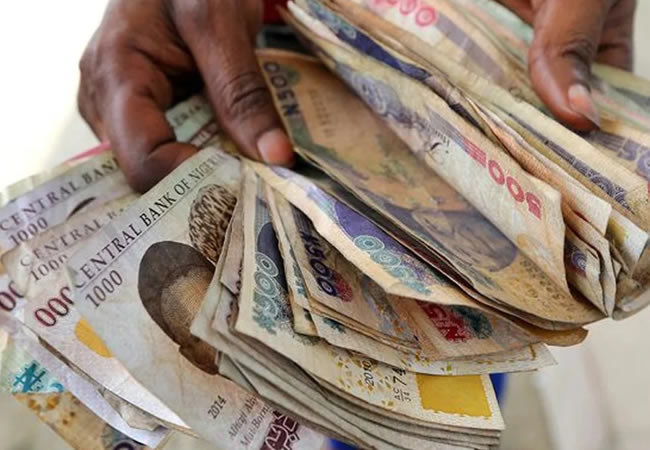Business
Naira weakened 40% against dollar since June, World Bank declares

The World Bank has said that the Nigerian currency, Naira has weakened by 40 percent since mid June 2023 devaluation and is one of the worst-performing currencies in Africa.
The World Bank said this in its report titled, ‘Africa’s Pulse: An analysis of issues shaping Africa’s economic future (October 2023 | Volume 28).’
“So far this year, the Nigerian naira and the Angolan kwanza are among the worst performing currencies in the region: these currencies have posted a year-to-date depreciation of nearly 40 per cent.
“The weakening of the naira was triggered by the central bank’s decision to remove trading restrictions on the official market. For the kwanza, it was the decision of the central bank to stop defending the currency as a result of low oil prices and greater debt payments”, the report said in part.
According to the report, other currencies with significant losses so far in 2023 included South Sudan (33 per cent), Burundi (27 per cent), the Democratic Republic of Congo (18 per cent), Kenya (16 per cent), Zambia (12 per cent), Ghana (12 per cent), and Rwanda (11 per cent).
It also noted that parallel exchange market rates were also compounding inflationary problems for some countries in the African region.
Read also: Tinubu Certificate Saga: Atiku to address World Press Conference
Ripples Nigeria reports that in June 2023, the Central Bank of Nigeria directed Deposit Money Banks to remove the rate cap on the naira at the official Investors and Exporters’ window of the foreign exchange market, and allow the free float of the naira against the dollar and other global currencies.
Since then, the naira had fallen from N473.83/$ to around N800/$ officially.
According to the World Bank, the widening difference between the parallel and official exchange rates of the naira had been the case from March 2020 until June 2023, adding that the parallel rate premium increased to 80 per cent in November 2022, and then to about 60 per cent in June 2023, as the Central Bank’s interventions to restrict foreign exchange demand and keep the exchange rate artificially low were met with declining FX supply from oil revenues.
The bank also noted that the unification and liberalisation of the exchange rates in June 2023 allowed the NAFEX rate to converge to the parallel one, closing the gap.
“However, resistance toward the increasing pressure on the Nigerian naira coupled with limited supply of FX at the official window has led to the reemergence of the parallel market premium”, it added.
Join the conversation
Support Ripples Nigeria, hold up solutions journalism
Balanced, fearless journalism driven by data comes at huge financial costs.
As a media platform, we hold leadership accountable and will not trade the right to press freedom and free speech for a piece of cake.
If you like what we do, and are ready to uphold solutions journalism, kindly donate to the Ripples Nigeria cause.
Your support would help to ensure that citizens and institutions continue to have free access to credible and reliable information for societal development.






















